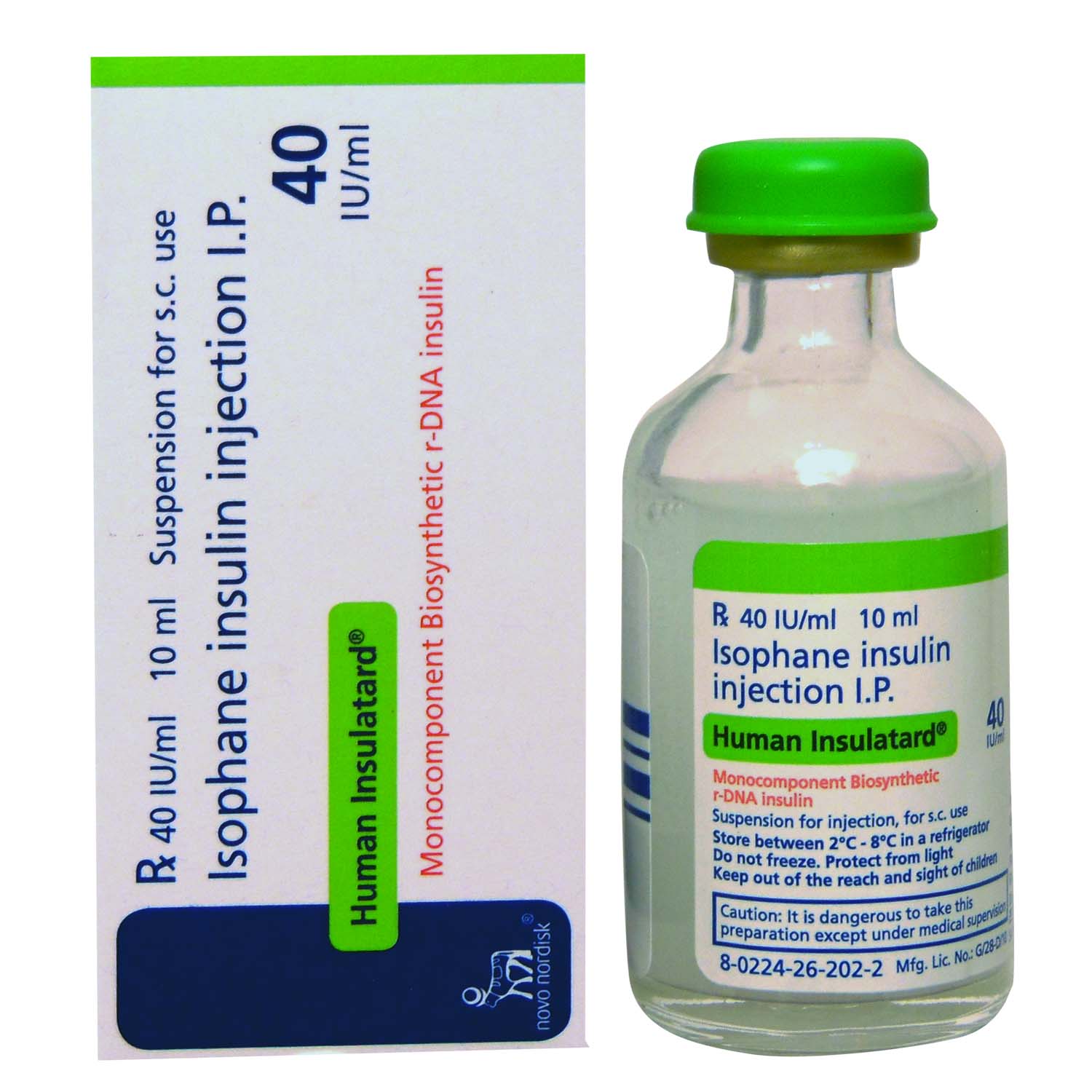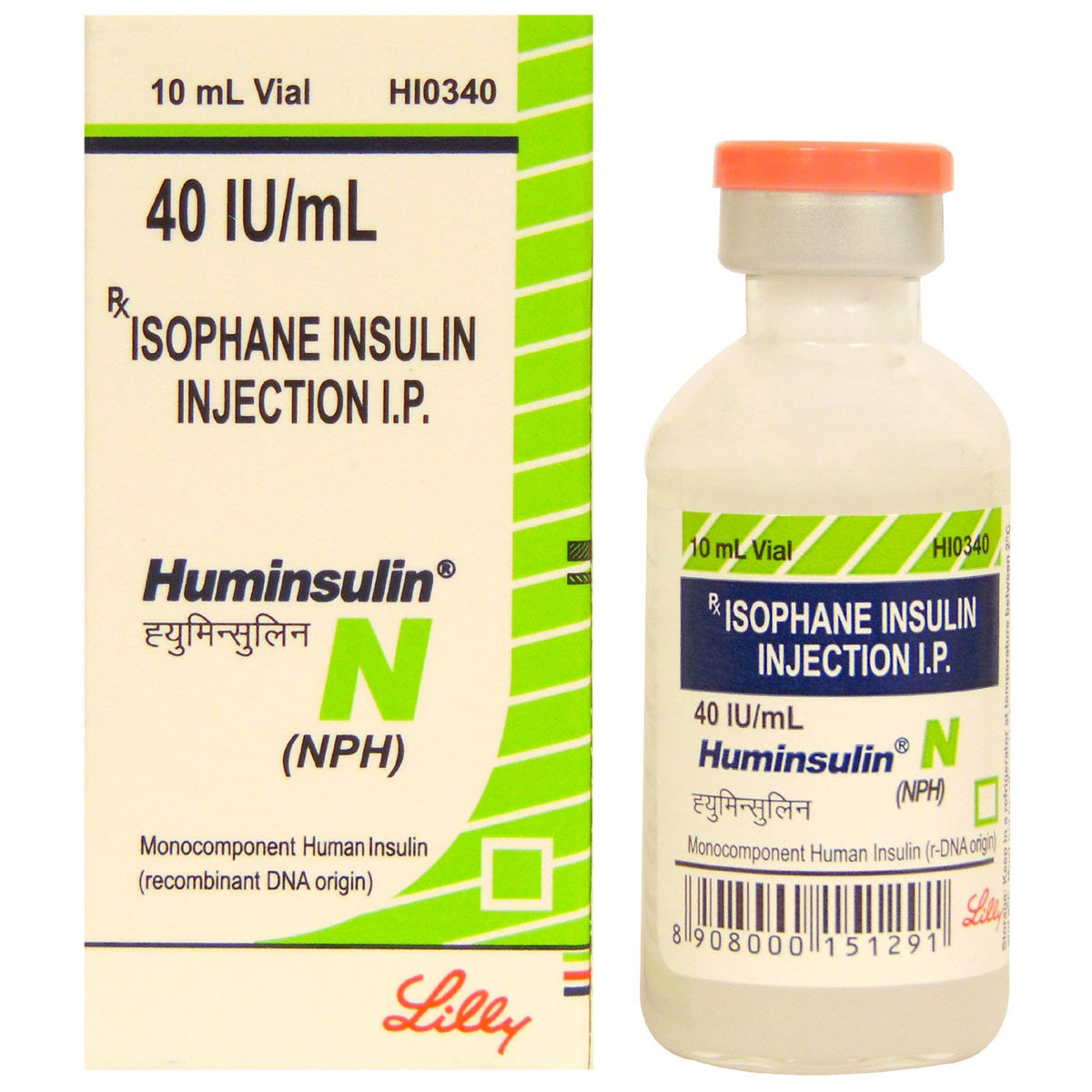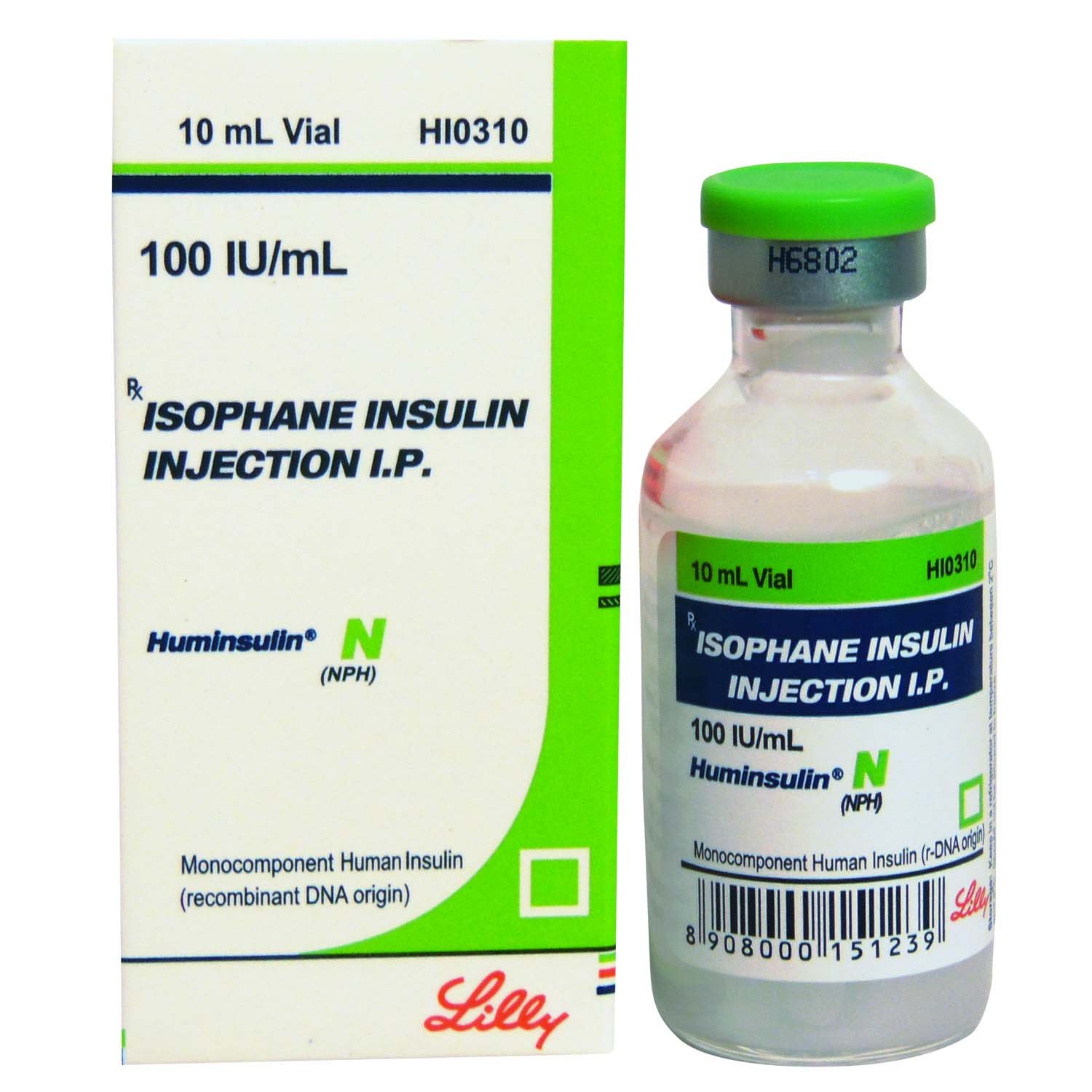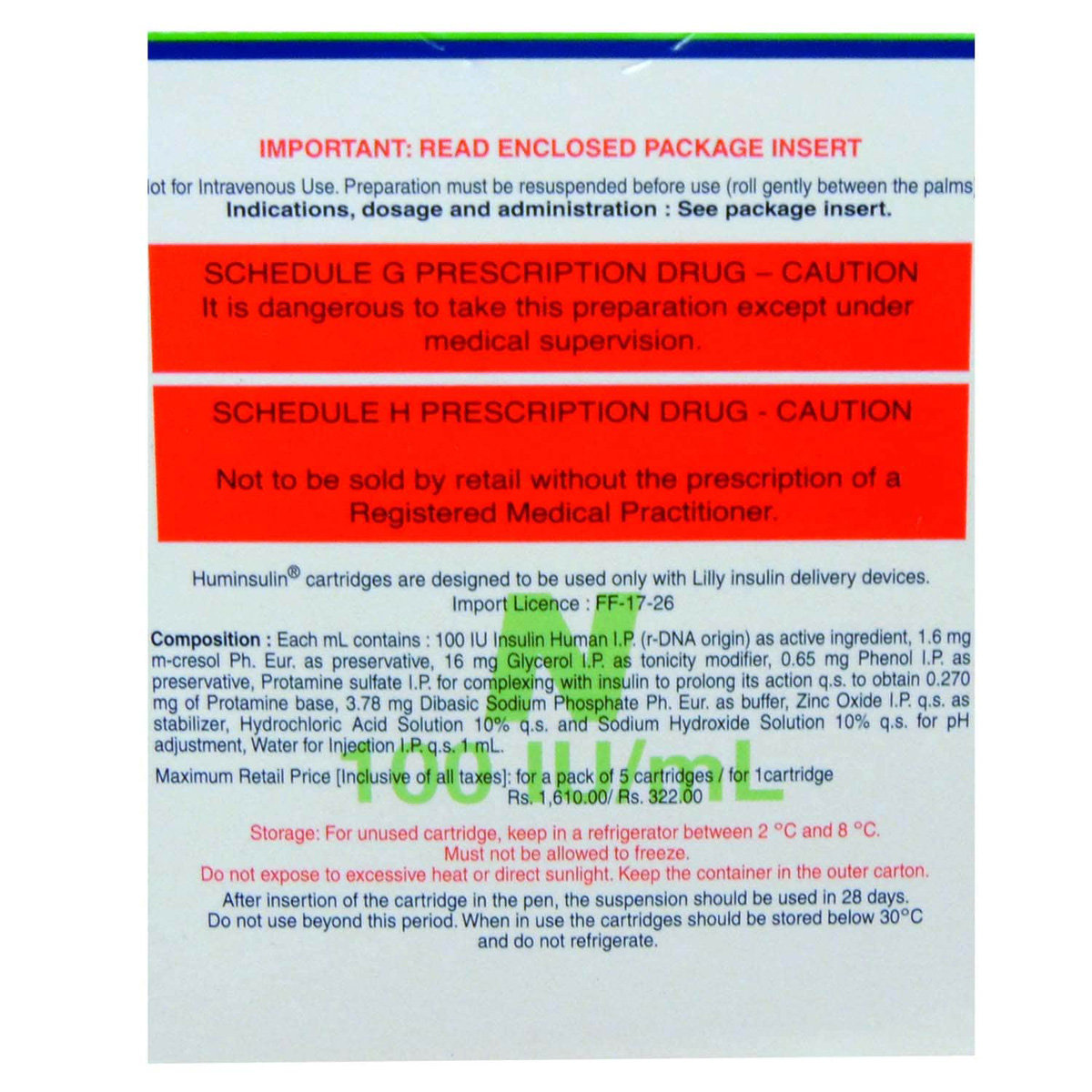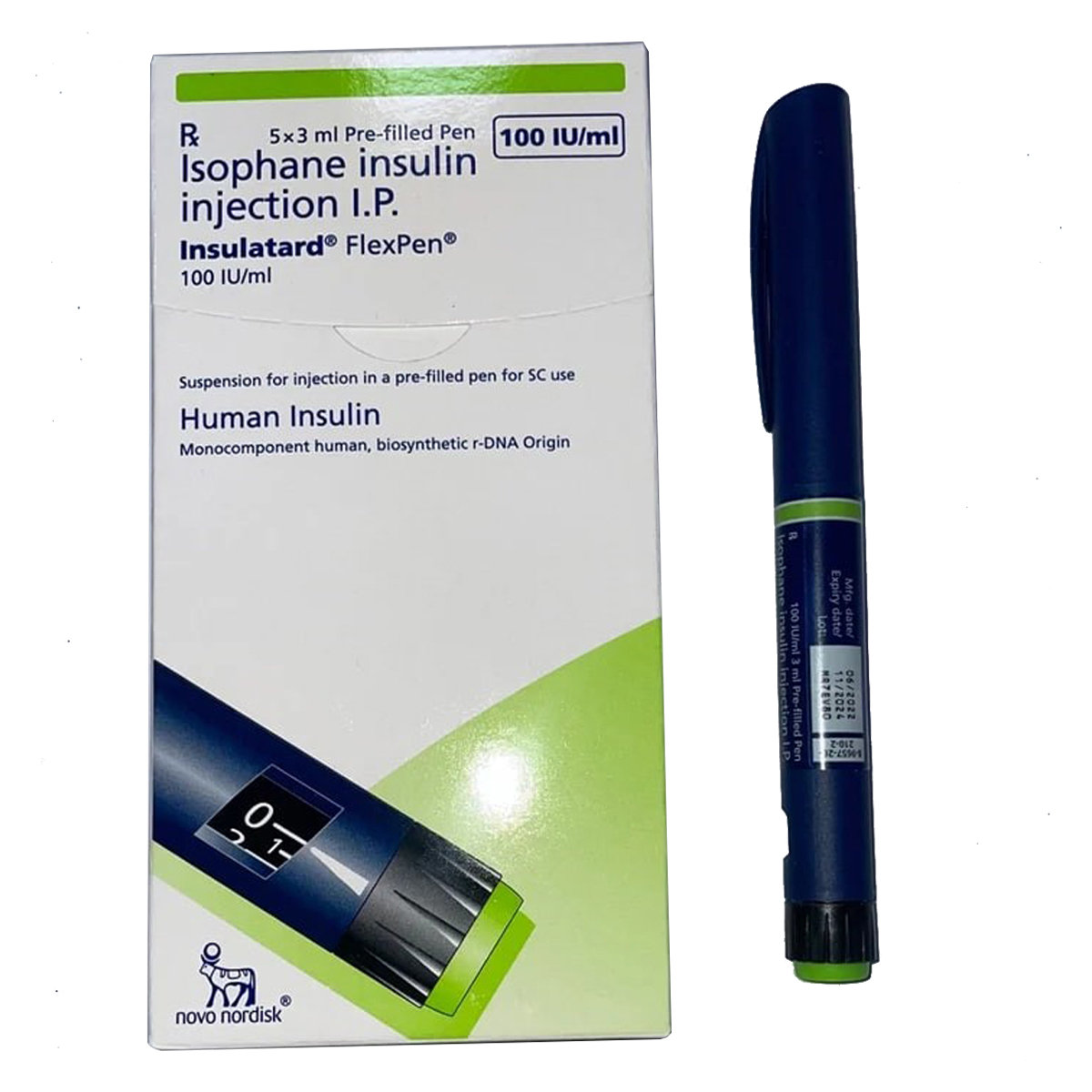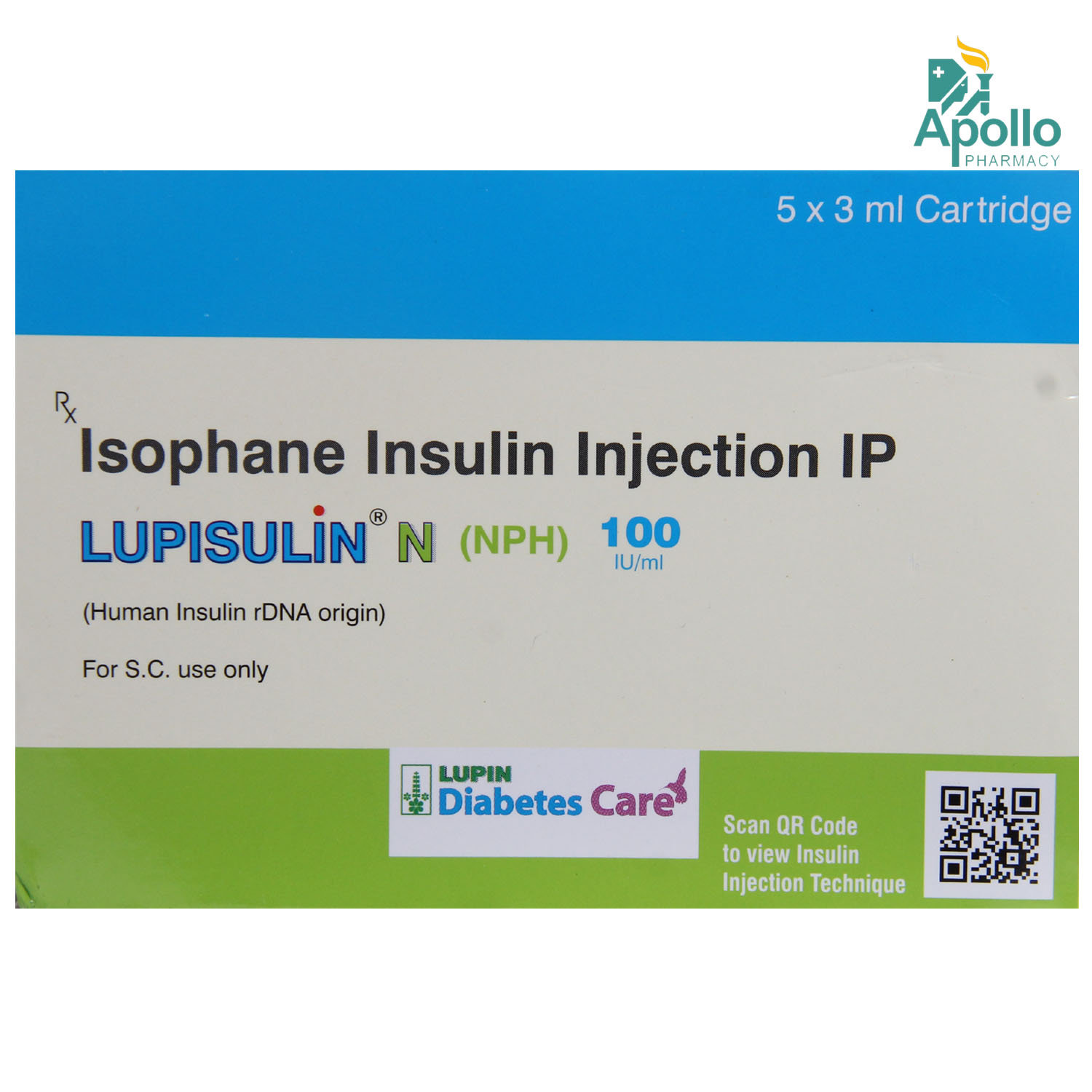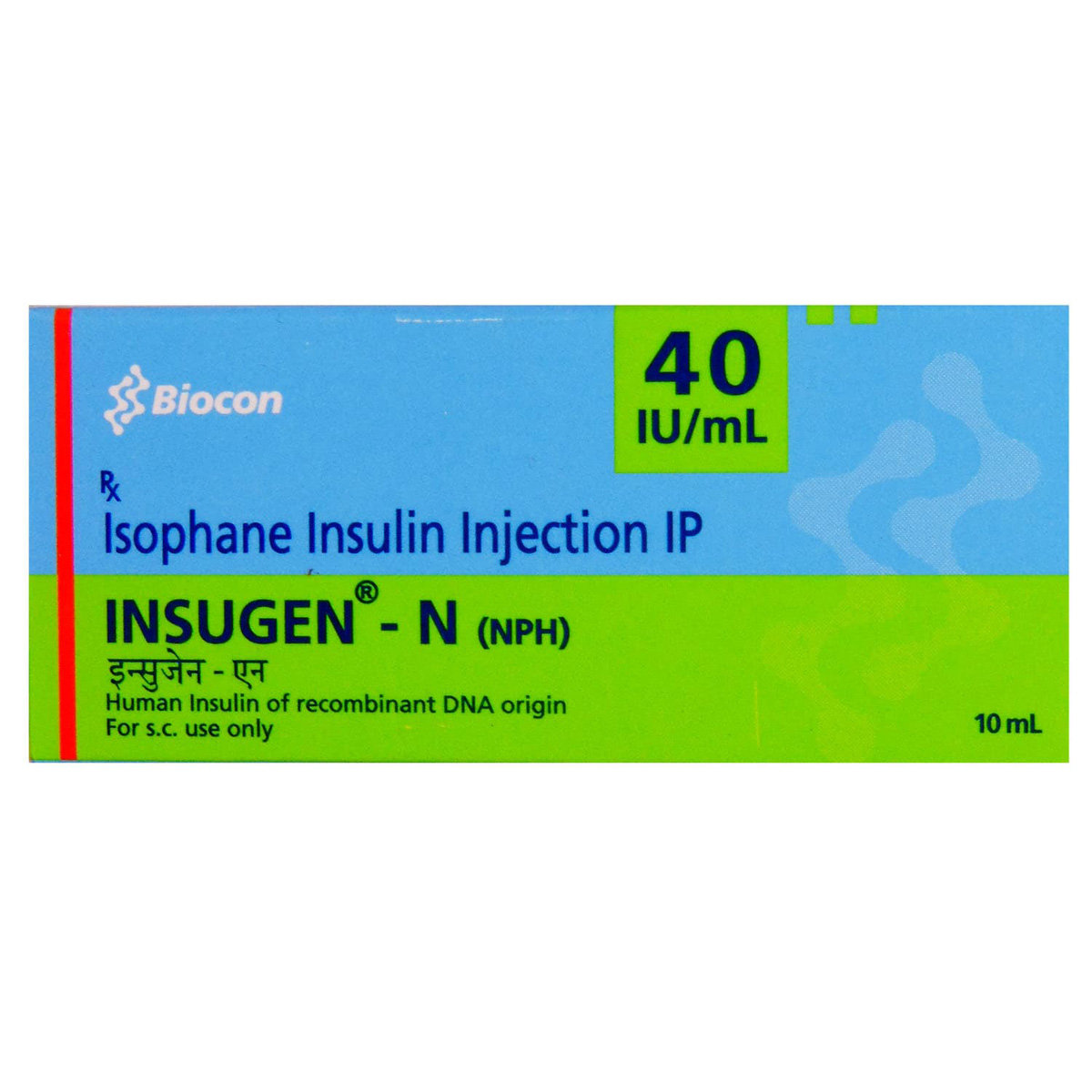Insulin Isophane+insulin (bovine)
About Insulin Isophane+insulin (bovine)
Insulin Isophane+insulin (bovine) belongs to a group of antidiabetic drugs primarily used for the treatment of both type 1 and type 2 diabetes mellitus. In diabetes mellitus type 1, the body does not produce enough insulin to regulate blood sugar levels (glucose). On the other hand, in diabetes mellitus type 2, either the body stops producing enough insulin (the hormone which helps decrease sugar levels in the blood), or there is resistance to the action of insulin. As a result, insulin is produced in large amounts leading to high blood glucose levels.
Insulin Isophane+insulin (bovine) is a combination of two medicines: insulin isophane is rapid-acting human insulin, and insulin bovine is animal insulin used in humans. Insulin isophane works by confirming rapid and consistent control of sugar. Insulin isophane is a fast-acting type of insulin that helps to reduce levels of blood sugar after the intake of meals. It prevents the chances of developing serious complications of diabetes. It facilitates the reuptake of sugar in muscle and fat cells and, thus, decreases sugar production in the liver. Insulin (Bovine) contains insulin, a natural hormone made by a cow gland called the pancreas. Insulin (Bovine) is used to treat Type 1 diabetes mellitus. In this type of diabetes, your pancreas does not make enough insulin to control the sugar level in your blood. It can be treated by taking insulin and maintaining your diet.
Your doctor or pharmacist will advise you on how to use this medicine. It is recommended to get it administered by a healthcare professional. It should be taken 15 minutes before the meal or within 20 minutes after you start having a meal. Sometimes, you may experience injection site reactions like redness or swelling. Some people gain weight while taking insulin. You may also experience symptoms of hypoglycemia such as cold sweat, cool pale skin, nervousness or tremor, unusual tiredness or weakness, difficulty in concentration, anxious feeling, confusion, drowsiness, excessive hunger, temporary vision changes, headache, nausea, and rashes. Most of these side effects of Insulin Isophane+insulin (bovine) do not require medical attention and gradually resolve over time. However, if the side effects are persistent, reach out to your doctor.
Try not to stop taking this medicine of your own. Let your doctor know about this, as it may cause withdrawal symptoms. Do not take this medicine if you have low blood glucose levels, kidney, liver, heart problems, or problems with alcohol or other prescription recreational drugs. If you have any allergic reaction to insulin, immediately stop Insulin Isophane+insulin (bovine). Along with Insulin Isophane+insulin (bovine), you should take a healthy diet, maintain weight, and exercise regularly as your doctor advises. Insulin Isophane+insulin (bovine) is a cold chain medicine, so it must be stored in the refrigerator between 2-8 degrees Celsius, or its efficiency may be lost. Do not store it in the freezer.
Uses of Insulin Isophane+insulin (bovine)
Medicinal Benefits
When you take Insulin Isophane+insulin (bovine), it works by ensuring rapid and consistent sugar control. It facilitates the reuptake of sugar in muscle and fat cells and, thus, suppresses the production of sugar in the liver. It helps to decrease blood sugar levels after the intake of meals. It prevents the chances of developing serious complications of diabetes. Insulin Isophane+insulin (bovine) helps in improving glycaemic control, which in turn decreases the risk of progression of complications of diabetes like damage of retina (retinopathy), damage of nerve cells (neuropathy), damage of kidney (nephropathy), delayed wound healing, diabetic foot ulcer, and others.
Directions for Use
Storage
Side Effects of Insulin Isophane+insulin (bovine)
- Hypoglycaemia (low blood sugar level)
- Injection site reactions
- Itching
- Rash
Drug Warnings
Insulin Isophane+insulin (bovine) is for subcutaneous use only and should never be administered intravenously (IV) or in the veins. If you are changing the brand of insulin, it should be done under strict medical supervision. Cases of heart failure were reported when pioglitazone was used with insulin, especially in patients at high risk of cardiac heart failure. The first symptoms of hyperglycemia (high blood sugar level) may include excessive thirst, dry mouth, increased frequency of urination, nausea, vomiting, drowsiness, flushed, dry skin, loss of appetite, and acetone odour of the breath. You should closely monitor these symptoms. Symptoms like heart failure, weight gain, and oedema (fluid deposition in tissue) should not be overruled. You are recommended not to consume alcohol as it may increase or decrease your blood glucose level. Care should be taken when travelling across more than two time zones. Your doctor may adjust your insulin schedule. Insulin Isophane+insulin (bovine) may decrease the level of potassium, leading to the state of hypokalaemia that, if left untreated, may lead to respiratory paralysis, irregular heartbeat rhythm, coma, and even death. Do not take this medicine if you have low blood glucose levels, kidney, liver, or heart problems, or problems with alcohol or other prescription recreational drugs.
Drug Interactions
Drug-Drug Interactions: Insulin Isophane+insulin (bovine) may have an interaction with antidiabetic (pioglitazone), anti-depressants (phenelzine, iproniazid, isocarboxazid, nialamide, imipramine, desipramine, tranylcypromine, moclobemide), anti-Parkinson’s drug (selegiline), antibiotic (linezolid), (lithium, tryptophan), migraines drug (sumatriptan), pain killer (tramadol), anti-ulcer (cimetidine, lansoprazole, omeprazole), anti-fungal (fluconazole), anti-stroke pills (ticlopidine), blood-thinners (warfarin, dipyridamole, and phenprocoumon), antimalarial (mefloquine), heart-related drug (flecainide, propafenone), and medicines that decrease blood levels of potassium or magnesium, as these increase the risk of life-threatening heart rhythm disorder. Besides this, the use of oral anti-diabetic pills like pramlintide acetate and antibiotics (pentamidine) may cause hypoglycemia (low blood sugar level).
Drug-Food Interactions: Insulin Isophane+insulin (bovine) may interact with an ayurvedic, homoeopathy, Unani, herbal supplements, or OTC items. Tell your doctor if you are using these products. Try to avoid the intake of alcoholic beverages with Insulin Isophane+insulin (bovine) as it may increase or decrease your blood sugar level.
Drug-Disease Interactions: Insulin Isophane+insulin (bovine) should not be given to patients with kidney disease, liver disease, low potassium level (hypokalaemia), and low blood sugar/glucose level (hypoglycemia).
Drug-Drug Interactions Checker List:
Safety Advice

Alcohol
unsafeYou are recommended not to consume alcohol along with Insulin Isophane+insulin (bovine) to avoid unpleasant side effects. Alcohol may intensify and prolong the hypoglycemic effect of insulin.

Pregnancy
safe if prescribedPlease inform your doctor if you are pregnant, as a dose adjustment may be required. The amount of insulin you need usually falls during the first three months of pregnancy and increases for the remaining six months.

Breast Feeding
safe if prescribedPlease inform your doctor if you are breastfeeding as a dose adjustment may be required.

Driving
cautionDrive with caution. Insulin Isophane+insulin (bovine) usually causes drowsiness and affects driving ability. Your ability to concentrate and react may be reduced if you have hypoglycemia (low blood sugar).

Liver
cautionInsulin Isophane+insulin (bovine) to be taken with caution, especially if you have a history of liver diseases/conditions. The dose may have to be adjusted by your doctor.

Kidney
cautionInsulin Isophane+insulin (bovine) to be taken with caution, especially if you have a history of kidney diseases/conditions. The dose may have to be adjusted by your doctor.

Children
safe if prescribedInsulin Isophane+insulin (bovine) can be given safely to children provided the dose has been prescribed by a child specialist.
Habit Forming
Diet & Lifestyle Advise
- Take short, frequent meals. Avoid prolonged fasting.
- Beware of hypoglycaemia symptoms such as sweating, dizziness, palpitations, shivering, intense thirst, dry mouth, dry skin, frequent urination, etc. Whenever you experience the mentioned symptoms, immediately consume 5-6 candies, three glucose biscuits, or three teaspoons of honey/sugar and get in touch with your physician. Make sure to carry these with you at all times, especially for long travels.
- Avoid drinking alcohol. It increases the risk of hypoglycaemia (a decrease in blood sugar which might be fatal in some cases) and lactic acidosis (when the lactic acid increases in the body, which impacts various organs).
- Try to quit smoking.
- Reduce intake of carbohydrate-rich food like potato, rice, mangoes, bread, sugar, etc.
- Avoid eating sugary food and prefer food low in calories.
- When travelling across more than two time zones, you should talk to your doctor concerning adjustments in your insulin schedule.
Patients Concern
Disease/Condition Glossary
Type 1 diabetes mellitus: In type 1 diabetes mellitus, the body does not make insulin (the hormone that helps decrease sugar levels in the blood) to control blood sugar levels.
Type 2 diabetes mellitus: In type 2 diabetes mellitus, either the body stops producing enough insulin, or there is resistance to the action of insulin. As a result, insulin is produced in sufficient amounts but cannot act on the tissues of the organs.
FAQs
Insulin Isophane+insulin (bovine) acts by replacing the normal production of insulin and helping transfer sugar from the blood into other body tissues, where it is utilized to generate energy. It also stops the liver from producing more sugar.
Insulin kept out of the refrigerator will not poison you or even make you sick. It just means that your Insulin Isophane+insulin (bovine) will not work as well or deliver its full potential dose. In simple terms, if your blood sugar is high, and you use the insulin that has been kept out, your blood sugar may not be lowered. In short efficacy of Insulin Isophane+insulin (bovine) will be decreased if not kept in the refrigerator between 2-8 degree Celsius.
Insulin Isophane+insulin (bovine) should not be given into the veins or intravenously (IV) route. It should be only administered in the subcutaneous region below the skin. The abdomen regions (stomach) is the best site for the injecting Insulin Isophane+insulin (bovine). However, you can also inject Insulin Isophane+insulin (bovine) in the upper arm, or thigh region.
Hypoglycemia refers to low blood sugar levels. Insulin Isophane+insulin (bovine) can cause hypoglycemia. The symptoms of hypoglycemia include nausea, headache, irritability, hunger, sweating, dizziness, fast heart rate, and feeling anxious or shaky. Hypoglycemia can occur if you miss or delay your food, drink alcohol, over-exercise, or take other antidiabetic medicine along with this medicine. Therefore, it is important to regularly monitor blood sugar levels. People with diabetes are advised to keep a quick source of sugar like glucose tablets, chocolate, glucose biscuits, honey, or fruit juice with them. If you experience any of the symptoms of hypoglycemia, inform your health care professional who may then adjust the dose of the medicine to better suit your needs.
If you use less Insulin Isophane+insulin (bovine) than you should, your blood sugar levels may increase. Please check your blood sugar. And also, do not inject a double dose to make up for a forgotten/missed dose.


